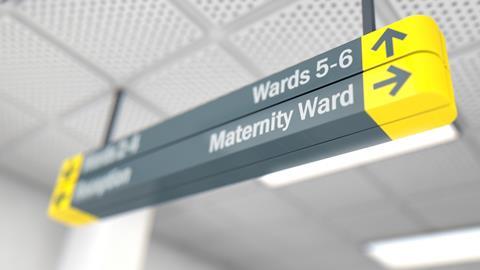Medical negligence solicitors throughout the UK have been watching carefully as various maternity scandals have emerged in recent years. First came Morecombe Bay, which saw the UK’s first independent investigation into maternity and neonatal services delivered between 2004 and 2013. Then Shrewsbury and Telford, where midwife Donna Ockenden conducted an independent review which examined cases involving 1,485 families, mostly from 2000 to 2019. More recently, Nottingham, and another independent review by Ockenden’s team which began last September and involves (at the time of writing) over 1,800 cases involving deaths of and harm to babies and mothers, making it the largest maternity scandal in the UK to date.

And now, University Hospitals of Leicester NHS Trust is being added to the rollcall of trusts who are failing babies and families following a CQC assessment at the beginning of the year, which saw them issued with a warning notice after inspectors rated safety at two maternity units as 'inadequate'.
Avoidable harm to babies and mothers on this scale is barely comprehensible in a modern age. Yet for the lawyers who represent the clients who are behind these tragic statistics, there is a sense of familiarity. These are not isolated problems.
This latest CQC inspection report makes for worrying, but unsurprising reading. As a firm, over recent years we have been monitoring and analysing the maternity cases we are instructed on relating to Leicester Hospitals and have seen trends emerging in the failures of care received by mothers and babies. Cases of multiple baby deaths, stillbirths, injured babies and mothers, are tragically all too familiar.
One overriding theme we see coming out of Leicester is that mums are not being listened to properly. Legitimate concerns are simply batted away and dismissed as ‘being entirely normal’, often in cases involving first-time parents. We have seen instances where a mum has sought help from the maternity units in Leicester’s hospitals only to be turned away because there has been a failure to recognise the severity of the issue; in many cases this has led to irrevocable harm to the baby and mum and in some cases, tragically, the baby was lost.
A large proportion of the clients that we see whose claims involve Leicester’s maternity units are South Asian or Black. We are often left asking whether the ethnicity of mum is significant. We know that this is something that the Ockenden team is looking into as part of the Nottingham review.
In its report, the CQC identified the problem of understaffing at the Trust. We represent families who are concerned that they received substandard care due to a lack of experience on the part of those looking after them. Substandard care involving incorrect reading of CTGs, insufficient monitoring and poor communication between staff.
Whilst there is already a national spotlight on maternity services in the UK, Leicester has, to date, avoided public scrutiny. From our own experience of representing those harmed by failings in care, we think it is right that there is now public attention on what is happening in Leicester in the hope that it brings about swift and long-lasting change.
Medical negligence solicitors will be familiar with the common message from their clients, that they want trusts to learn from their case. To acknowledge failings, understand what went wrong and implement the necessary changes to deliver safe, high-quality and compassionate care. Only positive and consistent actions and a culture change across maternity hospitals will lead to the reinstatement of patient confidence in the UK’s maternity services.
Gemma Lewis is a director and medical negligence solicitor with Leicester firm Moosa-Duke Solicitors
































No comments yet